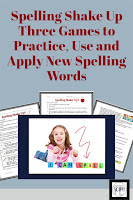Before his dictionary, Americans in different parts of the country spelled, pronounced and used words differently. To create uniformity, Noah used American spellings like "color" instead of the English "colour" and "music" instead " of "musick". He also added American words that didn't appear in English dictionaries like "skunk" and "squash". When he finished in 1828, Noah's dictionary contained 70,000 words.
During Webster's lifetime, American schools were anything but productive. Sometimes 70 children of all ages were crammed into one-room schoolhouses with no desks, poor books, and untrained teachers. The textbooks came from England. Noah thought Americans should learn from American books so he wrote a spelling book for children. Known for generations simply as The Blue-back Speller, millions of American children learned how to uniformly spell and pronounce words. Webster also established a system of rules to govern grammar, and reading. Clearly, he understood the power of words, their definitions, and the need for precise word usage in communication. Without a common oral and written language, he felt the country would remain divided.
Fast forward to today with the use of texting. Writing skills have turned into sentence fragments while spelling consists of numbers, symbols or abbreviations. These habits carry over when students are at school; consequently many really don’t know how to spell or write well. No longer can students punctuate correctly since text messages often contain run on sentences with no punctuation, In addition, with the constant use of lowercase letters, students fail to use capital letters where they should. How do I know? I teach at a community college where about 60% of our students are in remedial English which involves sentence structure, basic grammar and spelling. When assigning a written assignment, I must include how many words a good sentence contains and how many sentences are in an acceptable paragraph. Even these requirements do not guarantee a complete sentence.
 It seems we have moved away from standard spelling to inventive spelling (an abbreviated, expedient form); yet customary spelling has not gone out of style. It is required at school, in business, at work and in just everyday life. In addition, the correct spelling of words affects academic success. Students are frequently assessed on their skills in written language because it is considered a strong indication of their intelligence.
It seems we have moved away from standard spelling to inventive spelling (an abbreviated, expedient form); yet customary spelling has not gone out of style. It is required at school, in business, at work and in just everyday life. In addition, the correct spelling of words affects academic success. Students are frequently assessed on their skills in written language because it is considered a strong indication of their intelligence. Spelling is an indication of a number of things when a person applies for a job. When correct spelling is used, words are readable and communication is clear. This convinces a prospective employer that the job applicant has been well educated. It also tells them that they take care of detail and take pride in what they
present. Let’s face it, university applications and job resumes littered with spelling errors don’t make it very far becuz badd spilleng is hrd two undrstnd wen yuu reed it.
Furthermore, good spelling streamlines communication. By following the identical rules for spelling words, we can all understand the text we read. Likewise, good spelling avoids confusion. In a way spelling is similar to football. It is up to the person passing the ball to make sure the receiver actually catches it. The same goes for spelling. If you write with intent and proper spelling, the receiver of that text will understand it.
As teachers and parents, we should care about the fundamental part good spelling plays in our language and everyday lives. We owe it to our students to give them the necessary skills and essential spelling tools for learning and communication so they can be successful.




No comments:
Post a Comment